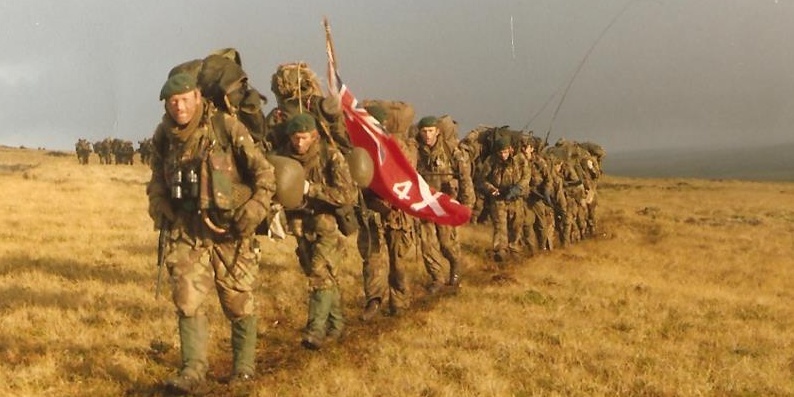Thirty years after the conflict ended, an Angus veteran of the Falklands War has stated his intention to return a identity tag taken from the body of a fallen Argentine soldier.
Graham Ellis (50), from Kirkton of Auchterhouse, removed the tag from Assistant Sergeant Ramon Gumersindo Acosta following the Battle of Two Sisters in June 1982.
A 20-year-old member of Arbroath-based 45 Commando at the time, Mr Ellis and his unit had been ordered to remove the tags from the bodies of dead Argentine soldiers for identification by the Red Cross.
When his patrol came under attack, he placed the identity tag of the Sgt Acosta in his pocket and only discovered it on his return to Britain.
Now, as the country commemorates the 30th anniversary of the conflict, Mr Ellis plans to return the tag to the Argentine government in the hope that it will be passed on to Mr Acosta’s family.
”One dog tag stays with the body while the other is handed in to the authorities,” he said. ”While it is of no intrinsic value it is very symbolic.
”It is quite a personal thing and the time is right for it to go back to his family. I just feel that by returning it I would be doing the right thing.”
Having conducted an internet search, Mr Ellis was surprised to learn Sgt Acosta had been a member of an elite unit of troops equivalent to Britain’s SAS.
He had been honoured posthumously by the government of Argentina and declared a national hero for his actions in battle.
The Battle of Two Sisters took place over two days in June as British forces advanced towards Port Stanley, the capital of the Falklands.
Despite holding superior positions over 45 Commando, the largely-conscript Argentine troops were heavily outnumbered and suffering from low morale.
Though he may have been an enemy on the battlefield, Mr Ellis admits he has nothing but admiration for the man whose tag he possesses.
”He had been killed by either mortar or an artillery wound,” Mr Ellis added. ”I have a great degree of respect for this man for staying and fighting.
”Even way back then I knew he was obviously a professional and not like the young conscripts who ran away.”
